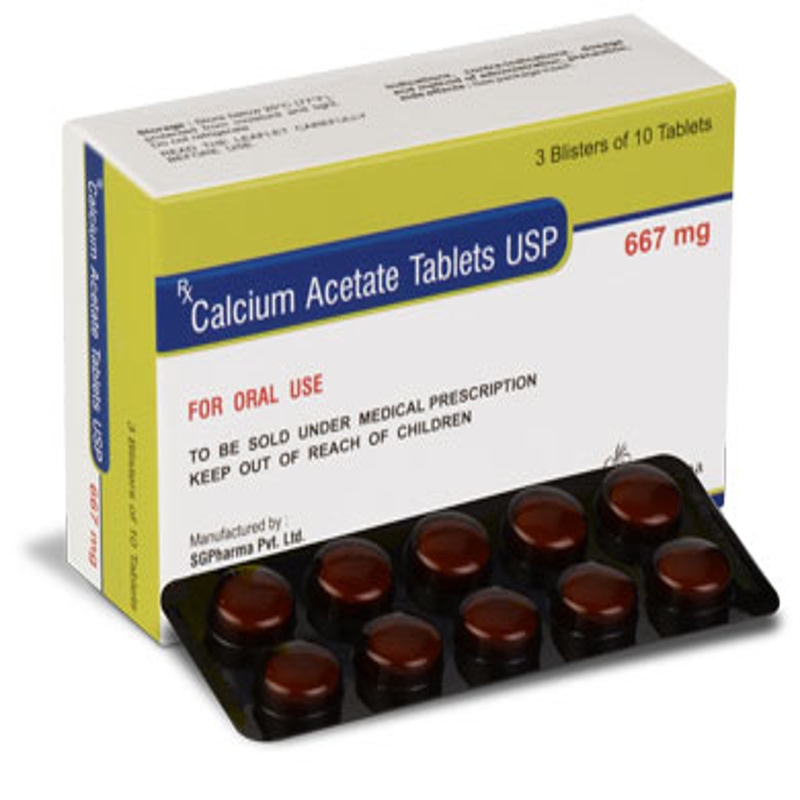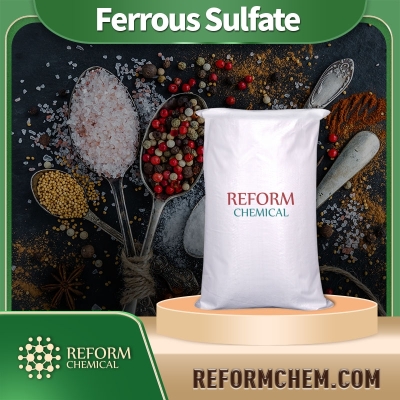-
Categories
-
Pharmaceutical Intermediates
-
Active Pharmaceutical Ingredients
-
Food Additives
- Industrial Coatings
- Agrochemicals
- Dyes and Pigments
- Surfactant
- Flavors and Fragrances
- Chemical Reagents
- Catalyst and Auxiliary
- Natural Products
- Inorganic Chemistry
-
Organic Chemistry
-
Biochemical Engineering
- Analytical Chemistry
-
Cosmetic Ingredient
- Water Treatment Chemical
-
Pharmaceutical Intermediates
Promotion
ECHEMI Mall
Wholesale
Weekly Price
Exhibition
News
-
Trade Service
From October 8 to 9, 2022, many top hematology experts at home and abroad gathered in Gusu City, the paradise on earth, to participate in the 15th Suzhou Hematology Summit
.
After more than ten years and a long journey, the Suzhou Hematology Summit has become an important academic event in the field of hematology, and it is also a solid platform
for many hematology colleagues and well-known scholars in the field to share academic frontier progress.
With the theme of "Standing at the Head of the Tide and Striving for the First", the conference specially invited many well-known experts and scholars at home and abroad to give wonderful academic reports, talk about "new progress, new theories and new technologies" in the field of hematology, and show the latest achievements
from cutting-edge basic research to clinical practice.
On October 9, 2022, the conference continued to contribute
to the development of the field of hematology.
Yimaitong specially compiled the wonderful content of this conference for readers
.
Professor Lijun Xia gave a wonderful report
Under the co-chairmanship of Professor Jin Jie of the First Affiliated Hospital of Zhejiang University School of Medicine and Professor Ai Huisheng of the Fifth Medical Center of PLA General Hospital, Professor Lijun Xia of the Oklahoma Medical Research Center in the United States A wonderful content
entitled "Organ Specific Thrombosis & Hemostasis and Spatial Transcriptomics" was shared.
Thrombosis and hemostasis occupy an important position in a variety of disease fields, and in recent years, significant achievements have been made in clinical research on the mechanism of thrombosis and hemostasis, which have further promoted the development of many types of blood diseases, but the organ specificity and mechanism of coagulation diseases still plague many basic and clinical researchers
.
The study found that the lack of Podoplanin (PDPN) in mice during development may lead to severe cerebral hemorrhage, which suggests that PDPN plays an important role in regulating cerebral angiogenesis.
Platelet CLEC-2 deletion prevented lung, kidney, and brain artery thrombosis in mice, which may provide a new therapeutic target for thrombotic thrombocytopenic purpura (TTP).
Von Willebrand factor (vWF) is also associated
with vascular embolism in sickle cell anaemia.
In view of the specificity of coagulation diseases in different organs, the third-generation omics detection method - spatial transcriptomics is currently being used for exploration
.
Dr.
Zhao Renbin gave a wonderful report
Under the co-chairmanship of Professor Lu Peihua, Executive Director of Lu Daopei Hospital, and Professor Zeng Hui, the First Affiliated Hospital of Jinan University, Dr.
Zhao Renbin of Beijing InnoCare Pharmaceutical Technology Co.
, Ltd.
shared the mechanism of action of molecular glue and its application in the field of hematological cancer
。
Ubiquitination/proteasome and ubiquitin ligase E3 are targets of great interest in the field of drug development for hematological cancer therapeutics
.
At present, molecular glue and PROTAC:IMiD targeted protein degradation have become new technologies in the field of tumor treatment, and many researchers are relying on this technology to develop new drugs
targeting ubiquitin ligase.
ICP-490 is an innovative highly active immunomodulator, which can efficiently and rapidly degrade Aiolos, directly kill tumors and enhance immune function, overcome lenalidomide drug resistance, and significantly improve the treatment status of multiple myeloma (MM).
In addition, ICP-490 has shown good potential for the treatment of DLBCL, and the L-MIND study has shown that the combination of ICP-490 can bring long-term survival benefits
to DLBCL patients.
Professor Han Weidong gave a wonderful report
Under the co-chairmanship of Professor Li Yangqiu of the Institute of Hematology, Jinan University, and Professor Xiao Zhijian, Hospital of Hematology, Chinese Academy of Medical Sciences, Professor Han Weidong of the First Medical Center of PLA General Hospital reviewed and looked forward to the relevant content
of CAR-T in the treatment of hematological malignancies.
CAR-T therapy began from "individual cases" and achieved "groups", and the reason for the breakthrough is the rational selection of indications and the great improvement
of preparation technology.
In the short term, China's cell therapy clinical research has entered the first echelon in the world, and the achievement of this achievement is related to many factors, such as the current China has formed a collaborative structure model including hospitals, schools, enterprises, relevant government agencies, etc.
, laying a good "hardware" foundation for the development of cell therapy; China's cell therapy regulatory policies have gradually built a perfect framework for cell therapy from macro to micro
.
However, at present, the main targets of CAR-T are the first to be discovered abroad, which also rings the alarm for
the development of CAR-T in China.
In the process of development, the recommendation of CAR-T therapy into the second-line treatment of non-Hodgkin lymphoma has greatly enhanced the confidence of workers in related fields in the development of CAR-T, and people are also actively exploring the application of CAR-T in MM, chronic lymphoblastic leukemia (CLL), acute myeloid leukemia (AML) and other fields, and I believe that there will be broad development prospects
in the future.
Professor Wang Qianfei gave a wonderful sharing
Under the co-chairmanship of Professor Song Yongping of the First Affiliated Hospital of Zhengzhou University and Professor Wang Jianmin of Shanghai Changhai Hospital, Professor Wang Qianfei of the Beijing Institute of Genomics (National Center for Bioinformatics), Chinese Academy of Sciences, shared the relevant content of FLT3 inhibitors and their driving drug resistance cloning evolution
。
Patients with newly diagnosed AML have low clonal diversity, less parallel evolution, and most patients have only one signal mutation per clone.
Relapsed patients have high clonal diversity and more subclonal mutations
.
Omics studies in AML patients have found that FLT3 has a rich mutational diversity
.
For newly diagnosed patients, different ITD mutants of primary drug-resistant chemotherapy showed different evolutionary trajectories.
Patients with relapse and refractory have complex clonal structures, multiple evolutionary patterns and polyclonal drug resistance
.
Compared with chemotherapy, targeted drugs will present different mutation selection pressures, Type-I FLT3 inhibitors will bypass to activate drug resistance evolution, and Type-II FLT3 inhibitors will drive kinase region mutations and bypass resistance processes
.
Drug-resistant cloning may be pre-existing or drug-induced
.
In response to this situation, a diversified and targeted combination strategy
can be considered.
Professor Zhao Weiyi gave a wonderful sharing
Under the co-chairmanship of Professor Wu Depei of the First Affiliated Hospital of Soochow University and President Dong Wenge of the Chinese Journal of Hematology, Professor Zhao Weiyi of Ruijin Hospital affiliated to Shanghai Jiao Tong University School of Medicine gave a wonderful sharing on the theme of leading the precise diagnosis and treatment of lymphoma with the concept of translational medicine
。
The main difficulties in the precise diagnosis and treatment of lymphoma lie in the high molecular heterogeneity, high chemotherapy resistance rate, high disease aggressiveness, etc.
, based on the new markers of pathogenic molecules of panoramic omics, new targets of chemotherapy resistance in biological behavior and new evidence-based diagnosis and treatment strategies of high-level clinical research, the rational application of translational medicine can significantly improve the clinical efficacy
of lymphoma patients 。 Genome sequencing plays an important role in the field of hematological tumors, and our center has shown that eugeneum rectal bacteria can inhibit the level of intestinal inflammation by producing SCFA, and the intestinal inflammation associated with the lack of eubacterium will promote the occurrence and development of intestinal lymphoma, suggesting that clinical intervention
can be carried out by monitoring patients for metagenomic abnormalities.
Workers in related fields should pay attention to effectively transforming the new findings of pathogenesis into clinically key diagnosis and treatment technologies, so as to establish an individualized and accurate diagnosis and treatment system
for lymphoma with Chinese characteristics.
Professor Zhang Xiaohui gave a wonderful report
Under the co-chairmanship of Professor Liu Kaiyan of Peking University People's Hospital and Professor Wang Shaoyuan of Fujian Medical University Union Hospital, Professor Zhang Xiaohui of Peking University People's Hospital shared the prospect and prospect
of hematopoietic stem cell transplantation in China.
At present, the development of hematopoietic stem cell transplantation in China has entered the fast lane, data from 2009 to 2021 show that the number of hematopoietic stem cell transplantation cases in China has increased significantly, and rapid progress has been made in AML, severe aplastic anemia (SAA) and other fields, taking SAA as an example, the proportion of transplantation treatment in China has increased rapidly from 6% in 2008 to 13% in 2019, and more than 50% of SAA patients receive haploid hematopoietic stem cell transplantation; In addition, there has been some progress
in hematopoietic stem cell transplantation in the fields of thalassemia and Fanconi anemia.
The combination of molecular targeting, immunotherapy and hematopoietic stem cell transplantation can produce a win-win effect of "expanding the transplant indication population and improving the transplant efficacy", and relevant exploration should be carried out in the future
.
Professor Huang He gave a wonderful report
Under the co-chairmanship of Professor Xu Kailin of the Affiliated Hospital of Xuzhou Medical University and Professor Zhang Mei of the First Affiliated Hospital of Xi'an Jiaotong University, Professor Huang He of the First Affiliated Hospital of Zhejiang University School of Medicine elaborated on the frontier progress of novel CAR-T cell therapy for refractory relapsed malignancies of hematological diseases
。
In the field of CAR-T cell therapy for malignant tumors in China, hematological tumors are mainly derived from B lines, and breakthroughs have gradually been made in the T and myeloid lines.
It has also achieved good efficacy in gastric cancer and liver cancer of solid tumors.
Non-viral, PD1 fixed-point integrated CAR-T cells have the technical advantages of low production cost, reduced risk of random insertion, enhanced efficacy, and diversified transformation, and have a good ability to kill tumor cells, preliminary clinical research results show that the complete remission (CR) rate of multi-line relapsed lymphoma can be increased from 50% to 87.
5%.
This is also the highest response rate
currently reported.
Universal CAR-T has a good effect on refractory relapsed ALL, but the duration in vivo is not long-lasting, and it needs to be further improved, and for T-ALL, targeting CD7 CAR-T while clearing CD7+ normal T cells may increase the risk of infection, and clinical prevention
needs to be strengthened.
The objective response rate (ORR) of patients with refractory MM treated by OriCAR-017 CAR-T cell therapy was 100%, the sCR rate was 60%, and there was no dose-limiting toxicity, no neurotoxicity, and adverse events were safe and controllable
.
The application of gene editing technology to gene knockdown or expression enhancement at the T cell level can further improve CAR-T cell function and reduce adverse reactions
.
Many experts and scholars comprehensively expounded the basic and clinical frontier progress in the field of hematology diseases from the perspectives of thrombosis and hemostasis, CAR-T treatment, hematopoietic stem cell transplantation, genomic testing, etc
.
, and provided a feast for Chinese workers in the field of hematology.
Starting with the end, we look forward to the future workers in related fields working together to bring more good news
to many patients with hematology diseases.







